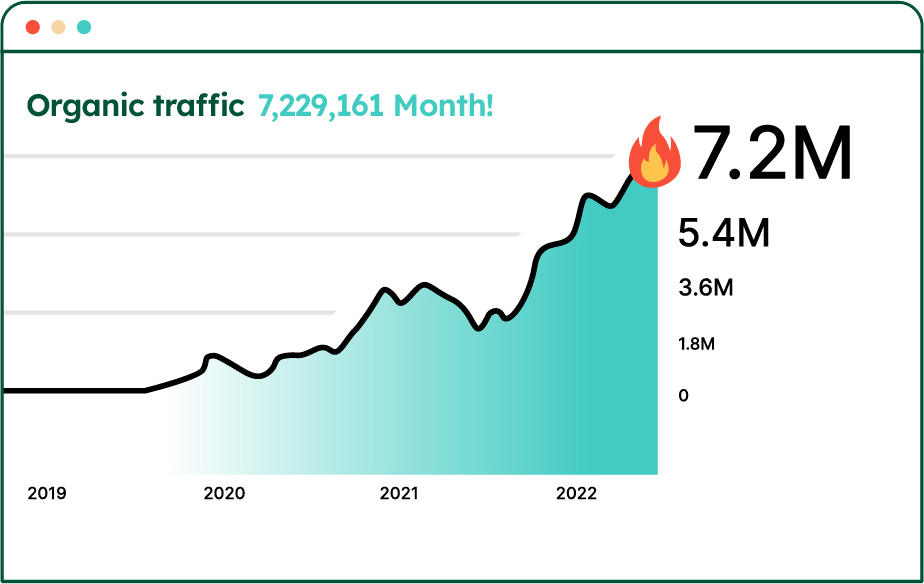There’s no denying that in 2022, content continues to be king.
Quality content can help drive traffic to your website, bring leads down your marketing funnel, and improve your conversion rates.
Creating quality content, though, is not that easy.
Unless you’re a professional writer with years of experience behind your back, chances are you’re better off outsourcing content writing entirely.
This begs the question: how can you outsource content writing and get the most bang for your buck?
Well, that’s what we’ll be covering in this article! Read on to learn:
- What is Content Writing Outsourcing
- Why Outsource Content Creation
- How to Outsource Content Writing
- Where to Hire Cont Writers
And more! Let’s dive in.
What is Content Writing Outsourcing?
Content writing outsourcing is hiring someone outside your organization to create content for you.
This can be just about any type of content, including:
- Blog posts
- Landing pages
- Social media posts
- Ebooks
Usually, content writing is outsourced to either individual freelancers or content creation agencies.
Why Outsource Content Creation?
There are a ton of reasons why you’d want to outsource your content creation, the most important of which are:
- You only need help with one certain task. Say, you’re a small business that needs help creating website content. You wouldn’t need a full-time employee to do this, as it’s a one-time role, so you’re better off outsourcing content creation to a freelancer or agency.
- Limited ongoing work. If you want someone to create, for example, 4 blog posts per month for your website, then that’s not something that warrants a full-time writer. Hence, you’re better off outsourcing content creation to a freelancer.
- Simplicity to scale. Hiring full-time writers can be a pain. You need to onboard them to your workplace, deal with all the paperwork, and so on. If you hire a freelancer, on the other hand, then the onboarding will be much faster and the writer will be able to get started with content creation faster.
- Better bang for your buck. Outsourcing content writers is usually cheaper than hiring a full-time employee.
- Access to a wide range of talent. When hiring writers in-house, you’re limited to content creators in your region. When outsourcing, you have access to a much wider range of high-caliber talent.
How to Outsource Content Writing
There’s a lot more to outsourcing content writing than just hiring a content writer and telling them to “do their thing.”
In this section, we’ll cover 6 essential steps for outsourcing content creation.
#1. Decide on Content Objectives
First things first – you should determine what you’re trying to accomplish with your content.
This is going to help you decide on the exact type of content writer you should hire.
For example, if you’re looking to rank well on Google, you’ll need an SEO content writer.
If you want someone to revamp your website’s copy, though, then you’re better off with a copywriter.
The most common content needs are as follows:
- SEO. You want your content to rank on Google and drive traffic organically.
- Content Marketing. You want to promote your content online on social media or via ads and drive traffic to your website.
- Social Media Content. You want to engage your existing audience on social media via quality social media posts.
- Conversion Rate Improvement. You want someone to revamp your website to improve conversion rates.
- Customer Education. You want to teach your customers how to best use your product or SaaS.
Once you’ve decided on the type of content you need, you’ll know exactly what kind of content writer to hire.
E.g. if you want to rank well on Google, you’ll need to outsource content writing to someone who has a solid track record of creating content that ranks.
#2. Determine Content Needs
Step 2 – you should decide on the exact amount of content you’ll need per month.
For example, do you need five blog posts a month, or do you need 20? Do you want these posts to be 500 words or 2,000 plus?
Having a good understanding of your needs will help you find the right outsourced content writer.
A content writer might give you a better rate, for example, if you ask them to write ten 2,000-word articles per month instead of, say, just one 4,500-word article.
#3. Source, Vet, and Hire Content Writers
Once you’re clear on the type and amount of content you need, it’s time to look for writers.
First thing first, you should create a Google Form to source all your writers. The form should have the following fields:
- Name & Email, for obvious reasons.
- Rate Per Word. By asking the writers for their desired rate, you can exclude anyone that doesn’t match your budget.
- Availability Per Month. This can help you understand if a given writer can fulfill all your content needs.
- Sample #1, #2, and #3. The best way to evaluate outsourced content writers is to review their past works.
- Portfolio URL. Finally, a link to their portfolio is always helpful.
Second, you should promote your job ad on writer job boards. We’ll comprehensively cover the best job boards/platforms a bit further down the article, but some of our favorites are:
- UpWork
- ProBlogger
- Cult of Copy Job Board (Facebook Group)
- Reddit Marketing Subreddits
- Reddit SEO Subreddits
Finally, once you’ve sourced your writers, you should go through their samples and shortlist 5-10 writers that meet your content needs.
Don’t just send an offer straight away, though. You’ll want to make sure that the writers’ work matches the samples they sent you.
So, make them do a short (paid) trial task and hire whoever performs the task up to par with your standards.
#4. Onboard Outsourced Content Writers
Once you’ve hired the writer(s) who performed well in their trial task, it’s time for onboarding.
This process usually involves the following steps:
- Send a contract and non-disclosure agreement.
- Decide on payment terms. Are you going to pay them monthly or per article? Which payment provider are you going to use?
- Decide on the work schedule. Is the writer going to deliver content at the end of each week or month?
- Optionally, onboard them in your PM tools. If necessary, your writers can also use your project management tools. Think, Slack, Basecamp, etc.
- Give them additional resources. Your content writers are going to perform better if they know more about your brand or the niche you’re operating in. If you have content written by former writers that you really like, send it to them so they have a good idea of what your expectations are.
#5. Create Content Outlines
A content outline, also known as a content brief, is a short document that outlines the content writer’s task.
Outsourced content writers can’t read your mind – they can’t just know what you expect from them unless you give them clear instructions.
That’s where content outlines come in.
What you include in an outline is up to you, but here’s what we recommend:
- Target keyword. E.g. “outsource content writing.”
- Secondary keywords. E.g. “what is content writing outsourcing,” “why outsource content creation.”
- Target audience. E.g. Editor, Head of Content, Chief Marketing Officer, and Marketing Lead.
- Target word count. E.g. 2,000+ words.
- Deadline.
#6. Collaborate with the Writer
Unless you’re working with the very best content writers in the industry, chances are, their content won’t be as good as it can be for the first month.
The writer might not be familiar with your industry, and they’ll have to do a ton of research to get acquainted with the niche.
As such, don’t just publish whatever the writer delivers without any edits or reviews.
Actively look through the work delivered by the writer and give feedback until you reach a point where you really feel like they’ve grasped the topic well.
Where to Hire Content Writers
Now that we’ve covered the “how” of outsourcing content writing, let’s talk about where you can find content writers to hire.
Here are some of our favorites websites for hiring blog writers:
- ProBlogger
- Cult of Copy Job Board (Facebook Group)
- UpWork
- FlexJobs
Content Writing Agency Versus Freelancer Writers
One final thing you should know about hiring outsourced content writers is that you have two ways you can go about this.
As we already mentioned, you can either hire a dedicated content writing agency, or you can hire an individual freelancer.
Both options have their pros and cons, which we’ll outline below.
Outsourced Content Writing Agency Pros & Cons
Pros:
- End-to-End Service. Content writing agencies need less supervision and project management. You won’t need to check in with them weekly and you also won’t need to create content outlines.
- Better Quality. All the work done by an agency goes through an in-house editor, so you won’t have to spend time editing the work yourself.
- Easier to Scale. If you want to ramp up content, all you have to do is ask the agency to deliver more. A freelancer simply might not have the time to do so, requiring you to hire another writer.
- Additional Services. Some content writing agencies also offer other services that might come in handy, like keyword research, SEO, link-building, and others.
Cons:
- Higher Pricing. Content writing agencies are usually more expensive than individual freelancers.
- Less Personal Contact. With an agency, you’ll likely be communicating with the project manager more so than an actual writer, so any feedback you might have would need to go through them.
Outsourced Freelancer Writer Pros & Cons
Pros:
- More Control Over the Process. You can onboard a freelance writer on your communication tools and talk to them on a daily basis (if need be).
- Niche Expertise. If you hire a freelance writer yourself, you can specifically make sure to hire someone who has experience in your niche. Working with an agency, though, does not guarantee that’ll be the case.
- Lower Pricing. Working with a freelancer will be cheaper than working with an agency.
Cons:
- Requires Management & Editing. You’ll need to manage the writer on a weekly basis and make sure their content meets your standards.
- Freelancers Might Not Stick Around. Freelance writers can end up leaving you all of a sudden if they find another client that pays better.
Key Takeaways
And that’s a wrap! Hopefully, by now, you should know everything you need to know in order to outsource content writing.
Before you leave, though, let’s do a quick recap of the most important bits we’ve covered:
- Content writing outsourcing is the act of having a third party create content for your organization.
- To outsource your content writing, you should decide on your content objectives and content needs.
- Then, you should source, vet, and hire the right content writers. Use the tips we outlined in this article to do this as effectively as possible.
- Collaborate with your content writers to make sure that they’re delivering content that meets your standards.





